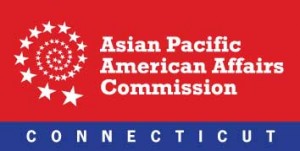Six State Commissions, Victims of Budget Consolidations, Disappear After Decades-Long Record of Achievement
/After 43 years, the ironically-named Permanent Commission on the Status of Women began the organization’s final newsletter with an ironic observation: “the PCSW had its most successful legislative session ever, celebrating the passage of four bills instrumental in protecting women's health and safety.” The PCSW is one of six legislative commissions eliminated in a last-minute budget compromise at the end of the legislative session a month ago. The six ceased to exist on Thursday (June 9). In their place will be two Commissions, each a mash-up of three of the organizations.
Wiped from the roster of state agencies are the PCSW, Legislative Commission on Aging, Commission on Children, Latino and Puerto Rican Affairs Commission, African American Affairs Commission and Asian Pacific American Affai rs Commission. Replacing them will be the Commission on Women, Children and Seniors and a Commission that merges the Latino, African-American and Asian Pacific American Commissions.
rs Commission. Replacing them will be the Commission on Women, Children and Seniors and a Commission that merges the Latino, African-American and Asian Pacific American Commissions.
All staff members were effectively laid off, some applied for the handful of jobs that are to exist in support of the new Commissions. The volunteer Commissioners will be holdovers, meaning that 63 Commissions will remain in place to set policy direction.
The 23 year old Commission on Aging was eliminated as Connecticut rapidly approaches a new, long-term reality—older adults will comprise an increasingly large proportion of the population. At least 20 percent of almost every town’s population in the state will be 65 years of age or older by 2025, with some towns exceeding 40 percent. Already, Connecticut is the 7th oldest state in the nation.
The Asian Pacific American Affairs Commission, the most recent of the six, was established in 2008 to respond to a growing population in Connecticut. With the smallest budget, the agency struggled to gain traction, and was just beginning to fulfill its mission when the end arrived. Connecticut's Asian American population grew from 95,368 in 2000 to 157,088 in 2010 – a 65% increase. Asians represent the majority minority in 40 percent of Connecticut school districts, according to the Commission. 
The Permanent Commission on the Status of Women was formed in 1973 to study and improve Connecticut women’s economic security, health and safety; to promote consideration of qualified women to leadership positions; and to work toward the elimination of gender discrimination.
Over the next four decades, the organization played a pivotal role in the passage of more than 50 significant pieces of legislation, often placing Connecticut at the forefront of progress towards greater justice or equal treatment for women.
That was certainly true in 2016, in what turned out to be, as was once said in a different context, the best of times and the worst of times. This year, PCSW advocated for major initiatives that gained legislative approval:
- Allow judges to remove firearms during temporary restraining orders in domestic violence;
- Make affirmative consent the standard for investigating alleged campus sexual assaults;
- Establish a working group to study possible labor violations in the nail salon industry;
- Eliminate the discriminatory tax on feminine hygiene products and diapers;
- Dramatically strengthen anti-trafficking laws by: shifting the focus of arrests in prostitution cases to the "demand side"; raising penalties against buyers of sex; removing the "mistake of age" defense; and requiring hotels and motels to keep records of those who rent rooms by the hour; and
- Give judges authority to remove parental rights from rapists in cases of clear and convincing evidence of sexual assault resulting in pregnancy.
Established in 1997, the mission of the African-American Affairs Commission (AAAC) was to improve and promote the economic development, education, health and political well-being of the African-American community in the State of Connecticut. The Commission has been at the forefront of a range of issues impacting the African American community in Connecticut, and its demise occurs when race relations and equal opportunity remain under heavy scrutiny in Connecticut and across the country. 
Glenn A. Cassis Executive Director of the African-American Affairs Commission, when the consolidation plan was announced, said merging the panels will cause "irreparable damage to the African-American community in Connecticut."
"The elimination of AAAC tells the African-American community that their issues are not important to the state,'' Cassis wrote in an open letter to the leaders of the General Assembly. "The message that resonates is that despite the successful efforts of the past to eliminate the disparities that exist for this constituency in education, health, economic development, criminal justice and incarceration, and social well-being have become marginalized. Years of progress made has been cut short from being fully impacted to the level that this growing segment of Connecticut’s population deserves and expects."
 The Latino and Puerto Rican Affairs Commission (LPRAC) was created by an act of the Connecticut General Assembly (CGA) in 1994. This 21 member non-partisan commission is mandated to make recommendations to the CGA and the Governor for new or enhanced policies that will foster progress in achieving health, safety, educational success, economic self-sufficiency, and end discrimination in Connecticut. As of 2014, the state’s Hispanic population exceeded 500,000, about 15 percent of the state’s overall population.
The Latino and Puerto Rican Affairs Commission (LPRAC) was created by an act of the Connecticut General Assembly (CGA) in 1994. This 21 member non-partisan commission is mandated to make recommendations to the CGA and the Governor for new or enhanced policies that will foster progress in achieving health, safety, educational success, economic self-sufficiency, and end discrimination in Connecticut. As of 2014, the state’s Hispanic population exceeded 500,000, about 15 percent of the state’s overall population.
In an Open Letter, LPRAC Executive Director Werner Oyanadel said “The decision to eliminate LRPAC does not in any way diminish the significant pride of the Commissioners and LPRAC staff, present and past, in the far-reaching and often ground-breaking work that has been accomplished to advance the quality of life for our state’s steadily growing Latino population.” He added that “the end of a distinguished and impactful decades-long history does not diminish or eviscerate the landmark laws, policy-changing research and enduring impact of LPRAC on countless families, businesses and individuals of Hispanic heritage, and all the citizens of Connecticut.”
The Commission on Children, established in 1985, was borne of the legislature’s desire for the development of “policies that would ensure the health, safety, and education of Connecticut children.” Said long-time Executive Director Elaine Zimmerman: “We feel we’ve succeeded beyond anyone’s wildest hopes, taking a leading role in issues as important—and diverse—as closing the achievement gap in reading, school climate, immunization, disaster planning for families, school readiness, children’s mental health, home visitation, youth employment, equity, and poverty reduction. ”
”
One of the testimonials on the PCSW website, said succinctly: “The commission boldly tackles the issues that matter to my survival and prosperity! Their work to identify and eradicate inequality (whether of the deliberate kind or not), to serve as a public voice for women’s issues which are underrepresented in all public spheres, and to engage the public is integral in working toward a fair and just society.”
Regarding the state’s Latino population, Oyanadel said “the successor combined Commission will not be nearly the same; we can only hope that its impact will not be diluted or weakened, though we are concerned that our community will have a softer voice advocating for those issues of particular importance in and impact on the Latino community.”
Back in 2011, when consolidations and eliminations were under consideration by legislators, but ultimately not approved, as was the case repeatedly since the 2008 recession, Gov. Malloy told the CT Mirror: "If they asked my advice, I'd consolidate a bunch of them."
And in 2016, it came to pass.






























